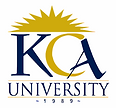PURPOSE
The general purpose of the African Conferences is to provide opportunities for scientists from all over the world to meet and to discuss current research on a broad range of subjects. Africa is a very compact geographical region, well provided with conference facilities, and this makes it feasible to hold inexpensive meetings.
The fact that the African Conferences are organized by a group of idealist academics primarily for the benefit of the scientific community should be kept in mind. Qualified scientists from any African country are, of course, welcome as participants, but the need to improve communications within the World is relevant to the scientific programme and to the choice of leading speakers.
These Conferences are broad in scientific scope and are open to all disciplines.
Uluslararası Afrika Kongresi

SCOPE
- Administrative Sciences
- Antrophology
- Biology
- Chemistry
- Economics
- Educational Sciences
- Engineering
- Geography
- History
- Humanities
- Medical Sciences
- Natural Sciences
- Physics
- Social Sciences
- Open to all disciplines

